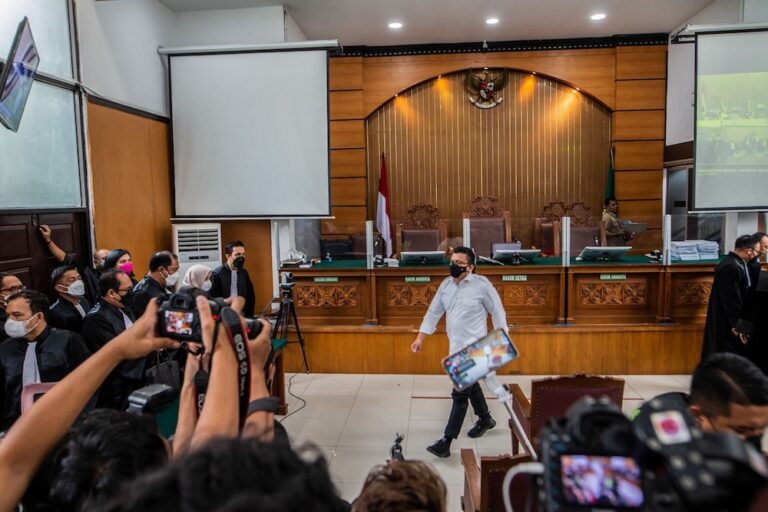Civil society organisations say the bill poses a serious threat to journalistic freedoms and civil liberties while contradicting existing legislation.
(AJI/IFEX) – The Alliance of Independent Journalists (AJI) has expressed concern over the recently passed State Intelligence Bill. Without careful monitoring, the new bill has the potential to endanger the nature of democracy and freedom of expression in Indonesia.
On 12 October, the Indonesian parliament voted to pass the controversial bill granting extensive new powers to intelligence agencies, despite repeated calls from civil society organisations for the bill to be withdrawn.
The State Intelligence Bill has been subject to vocal criticism from journalists, civil society, and the public since it was first introduced in 2002. A revised form of the bill was introduced shortly before its passage by a House of Representatives Commission.
According to AJI, the revised version has modified articles on crucial issues such as the authority to arrest and detain and criminal sanctions for individuals responsible for intelligence leaks. However, the bill continues to pose a serious threat to journalistic freedoms and civil liberties, whilst contradicting existing legislation.
Article 32 of the new law authorises intelligence organisations to intercept communications without prior court approval. This law threatens the individual’s right to privacy and is open to abuse.
This authority should be restricted to extenuating circumstances such as a civil or military emergency; these circumstances should be clearly defined and the state should remain accountable for any actions undertaken without authorisation.
Article 26 states that individuals or legal entities are prohibited from revealing or communicating state secrets, with a penalty of up to 10 years in prison and fees exceeding 100 million rupiah (USD11,000). However, the term ‘state secret’ is not clearly defined and could conflict with other definitions of information relating to the state, such as the 2008 Public Information Act.
Moreover, the article is open to misinterpretation and abuse by state officials, particularly in relation to journalists and organisations that seek to disseminate information to the wider public, and whose rights are guaranteed under Indonesian law.
Article 4 of Indonesia’s Press Law (1999) states that the national press shall not be subject to censorship, bans or broadcast limitations; that the national press has the right to seek, obtain and disseminate ideas and information freely; that journalists have the right to refuse to reveal the identity of their sources. It remains to be seen how this law will be interpreted should it come into conflict with the new State Intelligence Bill.
AJI calls for the establishment of a clear working definition of ‘state secrets’ as opposed to ‘state information’ under the Public Information Act, a definition which is crucial to the work of journalists and civil society.
AJI emphasises the central importance of public opinion in the formulation of the law, rather than government interest. Even laws which seek to protect society leave it vulnerable to the abuse of power and the curtailment of freedom of expression.
Finally, AJI called on the government to safeguard the freedom of the press against the potential dangers caused by the State Intelligence Bill, and to resolve any conflicts that may occur without impinging on personal and societal freedoms.


